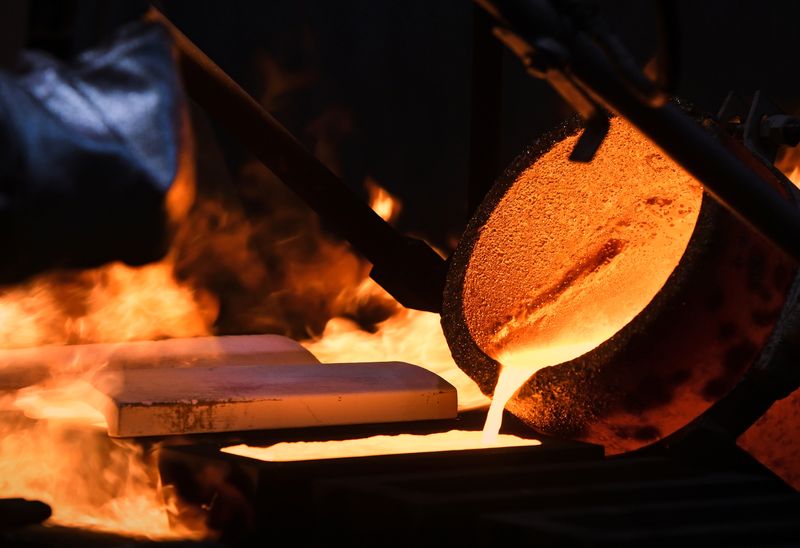By Ambar Warrick
Investing.com -- Gold prices fell to near one-month lows on Monday as traders awaited more cues on the U.S. economy from key inflation data due this week, while copper prices nursed steep losses amid growing uncertainty over an economic recovery in China.
A new year rally in gold prices cooled over the past two weeks as markets reassessed their outlook for U.S. monetary policy. The Federal Reserve recently signaled that it plans to keep raising interest rates even as inflation softened in recent months.
Tuesday’s consumer price index (CPI) inflation reading is expected to shed more light on where interest rates could potentially peak in the country. While inflation is expected to have fallen further in January from the prior month, it is still trending at relatively high levels.
Spot gold fell 0.2% $1,862.42 an ounce, while gold futures fell 0.1% to $1,872.85 an ounce by 19:10 ET (00:10 GMT).
Rising interest rates bode poorly for gold and other non-yielding assets. Strength in the dollar, which benefits from higher rates, also makes the yellow metal more expensive to purchase, weighing on demand.
Bullion prices were also pressured by rising short-term Treasury yields, as an inversion in the U.S. yield curve reached its deepest level since the 1980s. The trend signals a potential recession in the world’s largest economy this year.
This scenario may benefit gold prices later in 2023, especially if the Fed pauses its rate hikes due to mounting economic pressure. Gold saw some safe haven plays at the beginning of the year as the dollar retreated and as several economists warned of a looming recession.
Other precious metals also sank on Monday. Platinum futures fell 0.3% to $948.40 an ounce, while silver futures tumbled 0.8% to $21.095 an ounce.
Among industrial metals, copper prices retreated slightly on Monday after logging three straight weeks of sharp declines on uncertainty over a Chinese economic recovery.
High-grade copper futures fell 0.1% to $4.0107 a pound.
Copper prices plummeted on Friday after data showed Chinese CPI inflation grew less than expected in January, while producer price index inflation weakened further despite the relaxing of anti-COVID restrictions.
The weak data showed that an economic recovery in the world’s largest copper importer may take longer than expected, especially as it grapples with increasing COVID-19 cases.
